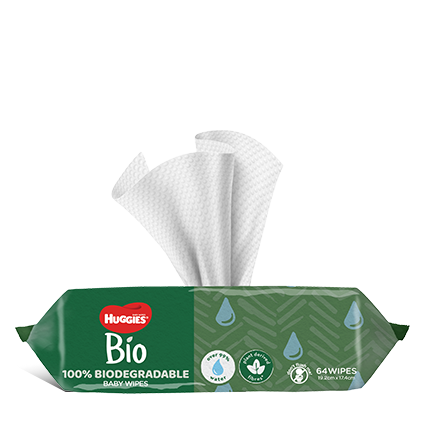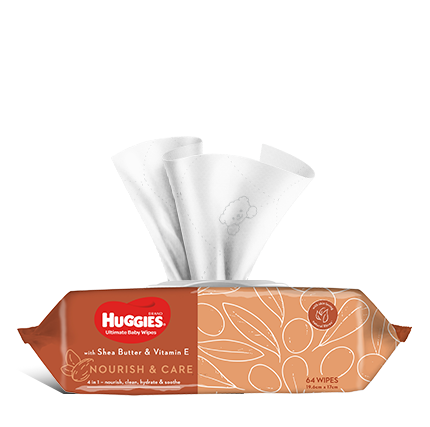Around the age of 9 months of age, you may notice your baby is crying more, waking more frequently overnight, is biting down more – these behaviours may all be due to teething. Though it often starts around the age of 9 months, teething ages can vary. Your baby might start teething from 3 months or not until closer to their first birthday.
The reason they may be more irritable is that the gums swell just before a tooth appears which can be painful, according to the book The Only Baby Book You’ll Ever Need.
When teething occurs, there’s no avoiding this stage, however there are some things we can do to help alleviate the pain and discomfort babies may experience during this time.
It can be confusing with all the teething pain relief solutions and products available to know which are safe and effective.
Here is a summary of the options you can safely use and how, as well as information about the options to avoid. Every baby is unique, so you might need to try different things to see what works best for you.
Top tips to soothe your baby’s gums when they are teething
-
Soothing the gums
The Australian Dental Association recommends one strategy is to use some light pressure with something cold to help relieve sore gums, like gently massaging the gums with a clean finger or a cold spoon. “Just remember, not too hard and not too cold! A chilled washcloth can also do the trick.”
-
Teething objects
Dr Teresa Li, dentist from TL Dental, suggests giving your baby something cold, like refrigerated teething rings. “But DO NOT FREEZE, as this can damage baby’s gums or any existing teeth.”
The ADA explains that chilled (not frozen) teething rings can offer temporary pain relief because of the pressure and the cold which can serve as a distraction.
The American Paediatric Association says that if the object is too hard, it can hurt the child’s gums. Parents should also supervise their children, so they do not accidentally choke on the teething ring.
-
Dummies
Sucking on dummies can help settle a restless baby and provide temporary relief, the ADA advises, but do not put sweet things like honey or jam on them, which can contribute to decay. If your baby has not used a dummy before, they may not be interested in having one introduced.
-
Feeding while teething
Yoghurt or other cold soft foods may soothe, says Dr Li. You could refrigerate soft fruits like oranges, watermelon, melons, strawberries, or raw vegetables. Just make sure that whatever foods you’re offering are not small and hard enough to be a choking hazard.
“Babies can also chew on teething rusks but this needs to be supervised,” says Dr Li. Chunks from these can break off and cause choking. ADA suggests rusks that are hardened and sugar free. They also suggest peeled cucumber or frozen carrots large enough that they cannot be swallowed.
-
More cuddles
Monique Christidis is a Parenting Expert and Sleep Consultant and founder of Baa Baa Baby. She explains, “You are your baby’s world, so you need to be giving more cuddles, more physical contact time as this can be a scary time for them – they don’t know why they’re hurting!”
This can help serve as a distraction from their pain, as can comforting or playing with your baby.
-
Breastfeeding and teething
If you are worried your baby might bite when they are teething, The Australian Breastfeeding Association says these things may help.
-Give your baby something hard and cold to chew on before a feed to alleviate their discomfort.
-Rub baby's gums before a feed, such as an ice-cube wrapped in a soft cloth
They may not want to feed at all if they are in a lot of pain, in which case it would be ideal to speak to a healthcare professional like the pharmacist about pain relief options.
-
Pain relief medications
If the above remedies don’t work, then you may seek advice from your doctor, pharmacist, or other healthcare provider about pain medication.
Christidis says, “You can give baby Panadol or baby Nurofen, as guided by a doctor. Nurofen is an anti-inflammatory and pain relief option, which is effective for their swollen gums, whereas Panadol provides just pain relief.”
-
Remedies to avoid
The ADA advises not to put medications into your baby’s food or drink.
They also advise caution when using teething gels.
Christidis says that if you are going to use, “Use with caution and only apply a tiny amount on your finger rubbed on the area of inflamed gum, which should provide effective relief. The Therapeutics Goods Association have recommended to only use products that have 1.5% lignocaine or less in the gel for babies. As teething gels contain the ingredient salicylate, there is a risk of poisoning if the baby swallows it. Always follow the package instructions.”
Dr Li advises against using amber necklaces for babies to chew on, as these can pose a strangulation and choking risk. There is also no clear scientific evidence to support the claims that amber bead necklaces help to ease teething symptoms.
REFERENCES
- https://www.nhs.uk/conditions/baby/babys-development/teething/tips-for-helping-your-teething-baby/
- https://www.teeth.org.au/babies-and-toddlers
Written by Tracey Cheung, April 2023. Tracey is a freelance writer who specialises in creating health and wellness content for the community, drawing on her experience as a mother.
Reviewed by Jane Barry, Midwife and Child Health Nurse, February 2024.


Last Published* June, 2024
*Please note that the published date may not be the same as the date that the content was created and that information above may have changed since.

















